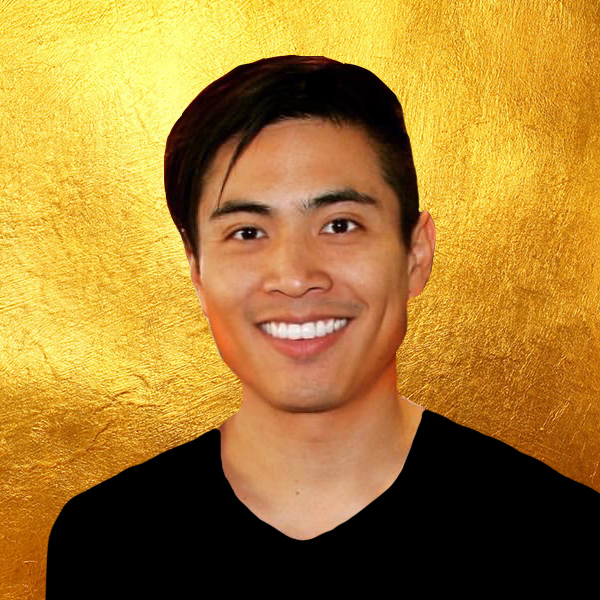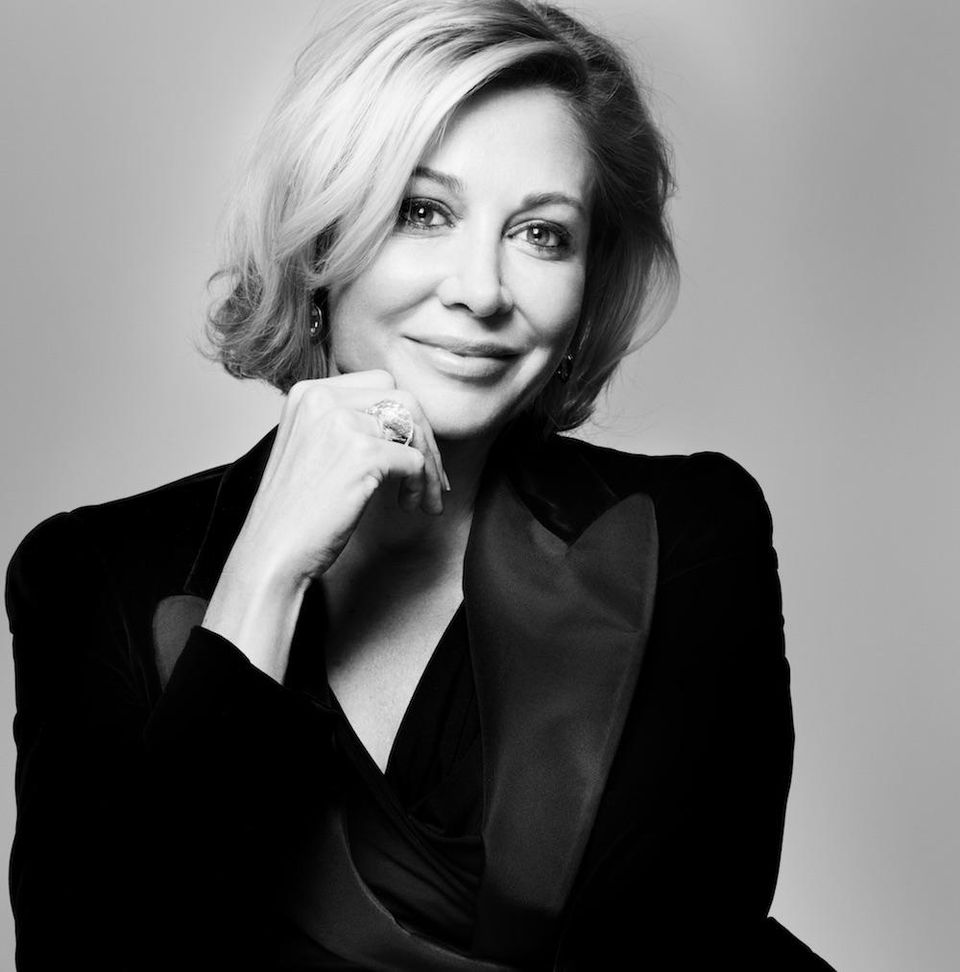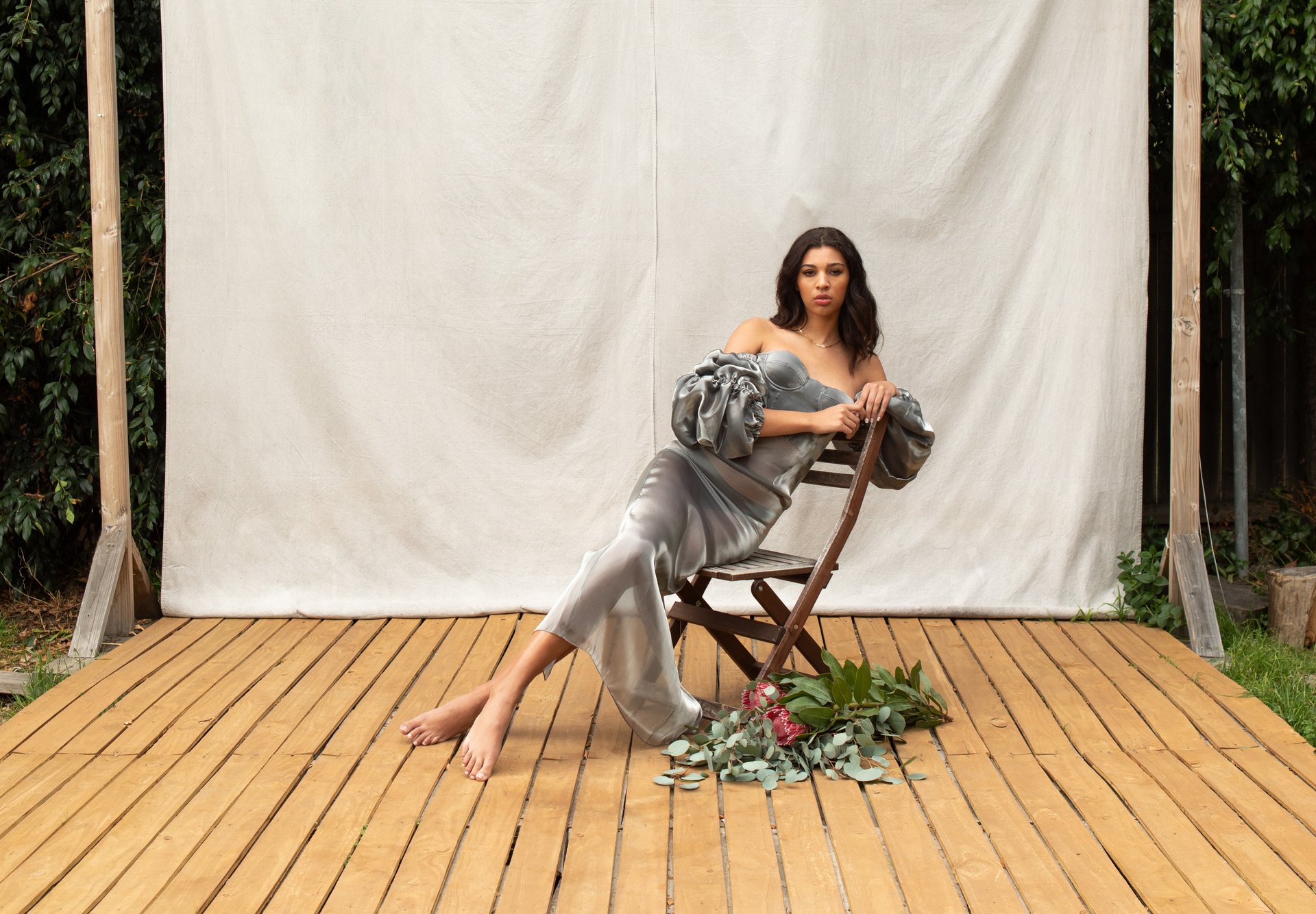Words With (Fashion) Friends: Bing Chen
May 1, 2021


Bing Chen co-founded and is President of Gold House, the nonprofit collective of “Asian founders, creative voices, and leaders dedicated to unifying the world’s largest populace–Asians and Pacific Islanders–to fight for authentic multicultural representation and societal equity.”
The work is highly important, and especially over the past year, its urgency has crystallized in light of the alarming surge in violence against Asian Americans.
The executive’s impressive resume includes YouTube, AUM Group, and accolades such as Forbes 30 Under 30, Hollywood Reporter’s Next Gen Leader as well as Most Influential Agent of Change, ADCOLOR Catalyst, and Asian Chamber of Commerce Entrepreneur of the Year.
We spoke to him about the impetus for Gold House, the current climate and how fashion can help in the fight against Anti-Asian hate crimes.
What was the impetus for you to co-found Gold House?
It was a cultural and commercial imperative. Culturally, we realized Asians weren’t supporting Asians—and we know the power of a community that mutually elevates from our Black and Jewish counterparts. These are communities with deep and gross persecution, one of which was stolen on ships and yet, successfully shipped one of their own into the White House. Commercially, AAPIs are the fastest-growing immigrant population; they will be one of the two largest minorities in the next 2.5 decades, and a disproportionate percentage of multinational growth comes from Asia. Yet, there was and remains no pan-Asian bridge between West and East—one that harnesses the formidable soft power of the former and unites it with the growth of the latter. We know that such a bridge has to first be strong on the inside – that is, domestically. We’re here to deliver that across a three-phase, multi-decade plan.
What is the mission of Gold House and what kind of programs are you creating to make the mission a reality?
We are the premier collective of Asian and Pacific Islander (API) cultural leaders fighting for systemic socioeconomic equity. Our execution is threefold: uniting APIs with each other and other multicultural communities through sincere and sustainable bonds; investing in the authentic, affirming, and prominent portrayal of APIs through media since we know the power of what we see on what we believe and how we navigate society; and finally, investing in more API C-Suite executives and Board Directors to sustain influence economically for ourselves and other communities. The multifold approach cross-pollinates since we know that socioeconomic equity requires both socio (or media efforts) and economic (via small business) impact.
In unity, we boast the largest collective of top API cultural leaders—both established and emerging—who we train to mutually-support each other. In representation, we have a holistic strategy but are most known for actively consulting on film script accuracy with every major and indie Hollywood studio; facilitating the financing of film projects; ensuring the opening weekend success of API films through our Gold Open movement (most notably, we are the dominant marketing reason why Parasite, The Farewell, and Crazy Rich Asians were #1 opening weekend in their respective categories and why the first two were the two of the top-five best-performing films by per theatre average opening weekend, pre-pandemic); and by celebrating the “best among us” through the Gold List to inform awards seasons on who should be nominated—and win. In success, we harbor the largest top API founder network and nation’s leading API founder accelerator for the most-promising; the companies in our Gold Rush accelerator have raised more than $20 million since the program, generated more than 1,900 new jobs, and more.
What in your view is most urgently needed to create equity and representation for the AAPI community?
We have a strategy I call “carrots and sticks.” We need carrots (affirming, abundance-building opportunities) and sticks (corrective/punitive measures when the carrots fall short) to progress culture forward. Our focus is the former as we believe in growing a larger pie before slicing it up. Minorities are often double victims of thinking we have to take what we’re handed — and then fighting each other for it. We aren’t; as the last decades have shown, we are capable and responsible for generating new industries that are uniquely us but employ and empower many more around us. To that end, we are misperceived. We need to invest and promote more API stories prominently in media that’s commensurate not only with our population’s percentage but our consumptive representation. Notably, on the latter, APIs out-index nearly every other demographic in nearly every media format, device, and IAB category. We’re not just fast-growing: we are over-consuming. This is an imperative on studios, individual storytellers, and publishers/platforms.
Money makes the world go round. We need to generate greater economic opportunities for those in corporations to shatter the glass ceiling (we are the least likely demographic to be promoted to management) and for those at the bottom decile of economic empowerment (notably, APIs have the widest income disparity). The good news is solutions for both—in big corporations and on Main Street—are highly concentric with how we’ll solve economic mobility for other traditionally underrepresented populations. This involves capital investments, training, tool deployment (e.g. let’s get Main Street thriving online), and community-driven activism and support (e.g. buy from your local multicultural business more often!).
Our political voice is young. We know we have political power as evidenced in Georgia in November but it’s not nearly enough. We need substantially more API-elected officials, appointments, and more to sustain socioeconomic opportunities through policy. Notably, Congresswoman Grace Meng has been doing a phenomenal job with her COVID-19 Hate Crime effort.
If we build for ourselves, we’ll build an island. We need to be more deliberate and sustained in our relationships with other multicultural communities—notably the Black, Latino, and Indigenous communities and, especially, with Women. While the origins of each of our challenges are distinct and singular, the solutions to each of them are highly concentric. We learned this in the best way through the Civil Rights Act during the 1960s where Black leaders’ fight directly benefitted the rest of us from voting to marriage to immigration policies. We need that again—we need to bring our unity from yesterday back to today.
On sticks, we need to accelerate financial and safety efforts for victims and those who may be vulnerable. There is, quite simply, no punishment for hurting an API right now—and that needs to change. We need a definitive stick organization—akin to AIPAC or the ADL for APIs. Some are trying but candidly, we have a long way to go. This isn’t a gap you can just throw money at–this is about building long-term political capital.
We need to be comfortable with being unpopular. My mother used to say that if I wanted to be well-liked, I should do nothing new. We are going to piss people off in this change. We are going to win just as many enemies as new friends. But everything new has always been hated by some. As long as we do what’s right, good, and moves us forward, we shouldn’t apologize for it. After all, ruffled feathers eventually fly with you.
How has your professional background, specifically with YouTube, informed your approach to Gold House?
Being a third culture kid who watched his father die young has obsessed me with only one ambition: how do you give the meaning of life to everyone? The greatest power in the world is not one that’s wielded—it’s one that’s given. And there is no greater power than delaying–or reversing–the only universal experience we all have: death. To that end, from YouTube to Gold House, I’ve been focused on how we empower everyone become who they are meant to be faster, more deeply, and longer. How do you enable the creation of life that lives forever? It’s our species’ single greatest imperative. And as a third of the population continues passing away (the Baby Boomers, which is the largest single influx of natural deaths in history), we have an even more pressing imperative to uncover this elusive dream.
At YouTube in 2010, everyone was excited by the prospect of democratizing distribution across devices, regions, and more—something we take for granted today. But I was more obsessed with the democratization of creation. How do you take someone in their literal bedroom with dreams of being a music superstar and catapult them there faster—not just creatively, but with a worldwide audience and sustained commercial opportunities? To confound the challenge: how do you do so for an individual and media company, across film and beauty and sports? We realized that whether you’re a musician in Bali or a media titan in Berlin, everyone cares about six things in descending order: fame, fortune, creative quality/innovation, skills, connection with other creatives, and recognition from the platform/house you’re in. We may talk about those things differently—for instance, an event for a musician is a concert whereas it’s a standup show for a comedian—but they both, invariably, involve the same elements: a stage, lights, tickets, concessions, and a wanting audience. These are the same things—they’re just named differently. We all want the same things: we just talk about them differently. That insight directly informed my globalization of the Creator Program (YouTube’s comprehensive suite of services for creators, which I also renamed from Partner for a variety of reasons). It also taught me that the political platitude “we’re all more similar than we are different” is fully true if you reorient elements the right way. I look at Gold House similarly. How do you unify 4.6+ billion people who have no common historic struggle, no single race, no single language, no single religion, and no convening universal apparatuses like church? In short: no reason to unify. We’ve found one—and continue executing against it.
The alarming rise in Anti-Asian violence requires imminent action. How is Gold House addressing it, and what work do you recommend needs to be done for change?
I go back to carrots and sticks.
-Sticks: communities are doing a strong job in providing financial relief for victims and neighborhoods (for instance, through GoFundMe.com/AAPI which we co-engineered with GoFundMe’s incredible team and other leading organizations like CAPE, Define American, and APIAVote). However, we still need definitive punitive and safety measures that are well-known to curb this violence.
-Carrots: we need even more efforts towards the real root of the problem—after all, if we wait until someone is attacked, we are too late. To that end, affirming media portrayals, greater economic mobility for us and our communities, and sustained policies are where the bulk of the rest of our attention must be paid. I’ve been beyond gratified by the more than 100+ companies we’ve spoken with over the last three weeks about these sustained efforts—and we’ll have more to share soon. No one wants to just post a gold square and write a blank check and so many are putting their time, formidable resources, and money where their mouths are.
What we can collectively do to fight these horrible crimes, and, specifically, how can the fashion industry help?
Fashion is at the forefront of societal change because it shows what’s visibly possible. Each of us has only seen through our own eyes so how would we know what else can exist—what else can be seen? Imagery creates reality. And given that what we wear is often who we are, it’s more incumbent than ever for the fashion industry—both behind the clothes and in them—to reflect demographic representation today. That means investing in new multicultural designers. It means elevating new editors who look like growing consumer bases. It means challenging ourselves to do more than justice for one demographic box but also to see how they can blend together. And it means quieting our incumbent egos to be open to change–knowing none of us has the panacea but that all of us can get closer to it together.

